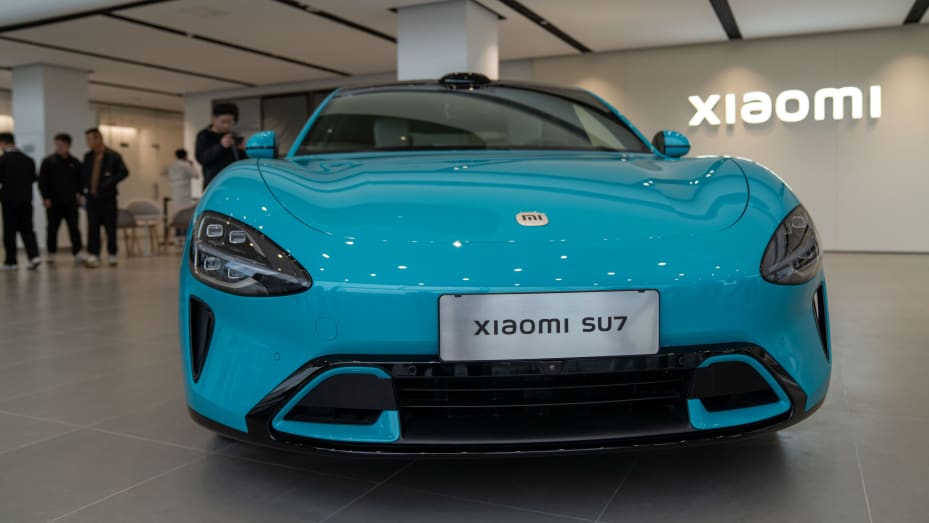In an attempt to strengthen economic relations between Nigeria and China, the Chinese government intends to build EV factories and other manufacturing endeavours in Nigeria.
Segun Tomori, Special Assistant on Media to Minister of Solid Minerals Development Dr. Dele Alake, made the disclosure in a statement on Sunday.
Tomori claims that the plans were discussed at a recent bilateral meeting between Yu Dunhai, the Chinese ambassador to Nigeria, and Minister Alake.
Potential collaboration in solid minerals sector
Stronger cooperation between China and Nigeria, especially in the solid minerals sector, was emphasised by the Chinese envoy, according to the statement.
According to reports, he stated that the planned construction of EV factories would be a big step in promoting local value addition and releasing Nigeria’s mineral potential.
Additionally, according to Tomori, Ambassador Dunhai conveyed China’s backing for Africa’s industrialisation, which is a fundamental component of Chinese President Xi Jinping’s foreign policy agenda.
During Tinubu’s state visit to China, he mentioned recent high-level meetings between Presidents Bola Tinubu and Xi Jinping with the goal of developing bilateral ties into a comprehensive strategic partnership.
“Chinese companies are already significantly involved in Nigeria’s mining sector, from exploration to processing,” the ambassador was quoted as saying. “We aim to deepen this collaboration, especially in line with President Tinubu’s eight-point agenda, which includes economic diversification through the development of solid minerals.”
China’s commitment to Nigeria’s regulatory compliance
The statement added that Ambassador Dunhai reaffirmed his government’s commitment to regulatory compliance in response to Dr Alake’s concerns regarding reports of illicit mining activities by certain Chinese companies.
According to Tomori, the envoy reaffirmed that the Chinese government has a zero-tolerance policy for illegal activity and encourages all of its citizens and businesses to follow Nigeria’s laws and regulations.
He stressed that Chinese companies have also been instructed to put strong corporate social responsibility (CSR) programs in place and closely follow safety and environmental regulations.
The Chinese embassy in Nigeria will continue to support efforts to prosecute non-compliant entities and strengthen oversight mechanisms in the sector, the ambassador, who was quoted in the statement, promised.
Nigeria’s commitment to sustainable development in electric mobility
In his words, Minister Alake reaffirmed the Nigerian government’s commitment to sustainable development via electric mobility, citing the nation’s abundant lithium reserves as a means of encouraging domestic production of EVs and batteries.
“We have taken decisive steps against illegal operators, including some Chinese nationals. While these are isolated incidents, they tarnish the image of the many compliant Chinese firms,” Alake was quoted as saying. “We need your continued cooperation to ensure that culprits are held accountable.”
He underlined Nigeria’s commitment to making sure mining operations in the nation prioritise local value addition and said that the country is still open to sincere investors.
“With our abundance of lithium, we want to see investments in local manufacturing of electric vehicles and batteries. This is crucial for driving industrial growth and achieving sustainable development,” he added.
China-Nigeria’s trade relationship
Nigeria’s top import partner is China, according to the National Bureau of Statistics’ (NBS) 2024 trade report, which show that imports from China increased significantly to N14.14 trillion in 2024 from N6.6 trillion in 2023.
In the meantime, Nigeria’s electric vehicle (EV) market has been expanding on several fronts. For example, C&I Leasing Plc recently declared that its Ghanaian subsidiary would be expanding its electric vehicle operations.
The move, which followed an impressive oversubscription to its Series 5 Commercial Paper issuance, demonstrated investor confidence in its sustainable transport strategy.
The Federal Government authorised a ₦151.9 billion funding package in March 2025 for the installation of electric buses, tricycles, and charging infrastructure throughout the North-East region, marking a more significant policy change. Promoting cleaner energy sources, cutting emissions, and increasing EV adoption in underserved areas are the goals of this initiative.











